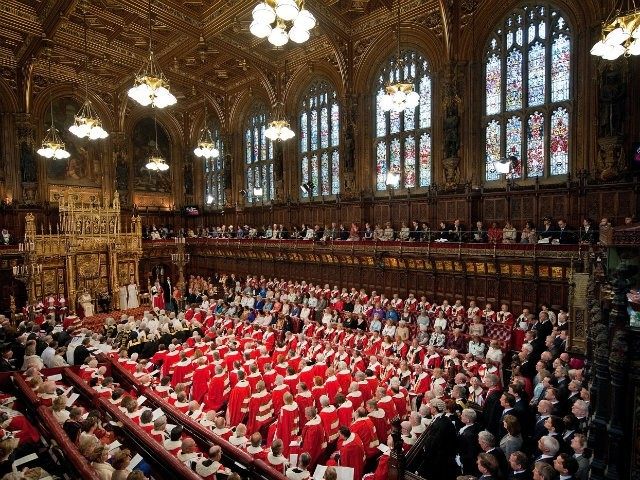The Liberal Democrats have historically positioned themselves as the champion of serious democratic reform, both through changing the voting system to one of proportional representation and by replacing the House of Lords with a fully-elected second chamber comprising considerably fewer members than the current House.
Four years ago their demands for reform cost the British taxpayer £75 million while administering an embarrassing defeat for Clegg as the electorate voted almost two to one against adopting the alternative voting system.
But that was then and how the tides have turned for Nick Clegg and his party. The Lib Dems have lost their deposit – meaning that they have failed to gain a mere 5 percent of the votes cast – in eleven parliamentary by-elections since the last General Election in 2010. Over the course of the past year they have consistently polled below 10 percent, averaging around 8, trailing UKIP by far and often overtaken by the Greens.
Looking forward to next year’s election, things are looking a trifle uncertain for numerous incumbent Lib Dem MPs. They currently have 57 elected members in the commons, some of whom, including veteran member for Bath, Don Foster, are standing down, removing the incumbency factor and putting their ‘safe seat’ at risk; former Conservative Future chairman Ben Howlett might yet take Bath for the Tories, much to the chagrin of all his genuinely right-wing contemporaries.
Lord Ashcroft’s polls suggest that they are set to lose at least three key Lib Dem–Tory marginal seats and are likely to lose several more seats than the national polls with uniform swing would predict. Clegg’s party are haemorrhaging more votes in their strongest seats, to the point that their previously solid incumbency record may yet be well and truly shaken.
One Lib Dem under particular threat is my very own MP, Ed Davey in Kingston and Surbiton; for this reason I will probably vote tactically for the Conservative candidate James Berry who, despite looking worryingly young for such a big job, has a better chance of ousting the wet than the UKIP candidate, whose website contains a concerning number of shouty capitals.
Even down in the South West, traditionally an area where Cleggites do rather well, things are looking shaky; current polls have them at 6 percent, down from 37 percent in 2010. In contrast, UKIP is well on its way to picking up its first West Country seat of Camborne, Redruth and Hayle, with 33 percent of those polled supporting the Eurosceptics.
In the hapless leader’s own constituency of Sheffield Hallam there are fears that he might be ousted come next year despite winning with a 15,000 majority in 2010. Today’s betting puts them on winning just 28 seats, less than half their current slew, and a total wipe-out in Scotland. Bad times indeed, but entirely deserved.
But yet, as defeat in the commons looms, there is a rather ironic twist that may yet preserve some undeserved power for the lentil weaving little socialists, for they have taken rather a hold of that “flawed institution” (Clegg, 2012), the House of Lords.
Never to shy away from hypocrisy, the Lib Dems currently have 101 sitting life peers and 4 hereditary peers, and it wouldn’t be entirely unreasonable to suggest that some current MPs might be bumped up when they lose their seats in May. Just three months ago they stormed a by election – not in the commons, far from it – but for one of the 92 remaining hereditary peerages; The Earl of Oxford and Asquith was duly elected with 155 of the 283 cast.
For a party so hell bent on reform this is quite genuinely shocking, yet when you scratch beneath the surface the Lib Dems are just as committed to power over democracy as Labour and the Tories. One might think that they would use their power in the chamber they so hate to encourage greater democracy, yet so far they have used it to kill off a law providing for a 2017 referendum on Britain’s membership of the European Union, causing the debate of the EU (Referendum) Bill to end at committee stage in the Lords.
If their vote does hold and the Lib Dems cling on to a role in the next government after the General Election, I bet their appetite for Lords’ reform will be somewhat diminished. If they are defeated, as so many polls, by elections and hope in the British people suggests, Clegg’s lot will still hold the power to affect legislation via the second chamber, lingering like a bad smell for donkey’s years.
In 1935 George Dangerfield wrote his classic, ‘The strange death of Liberal England’. Maybe that was a touch premature, but after May, what will be left is a Liberal undead, shaking their jowly post-democratic chops from the red benches.

COMMENTS
Please let us know if you're having issues with commenting.